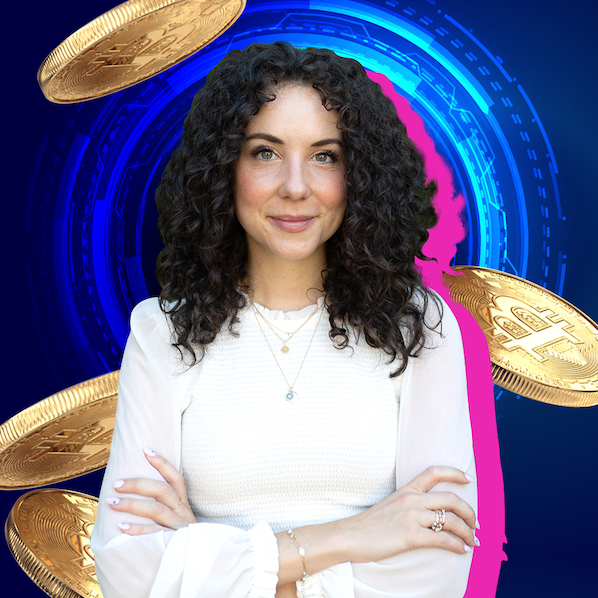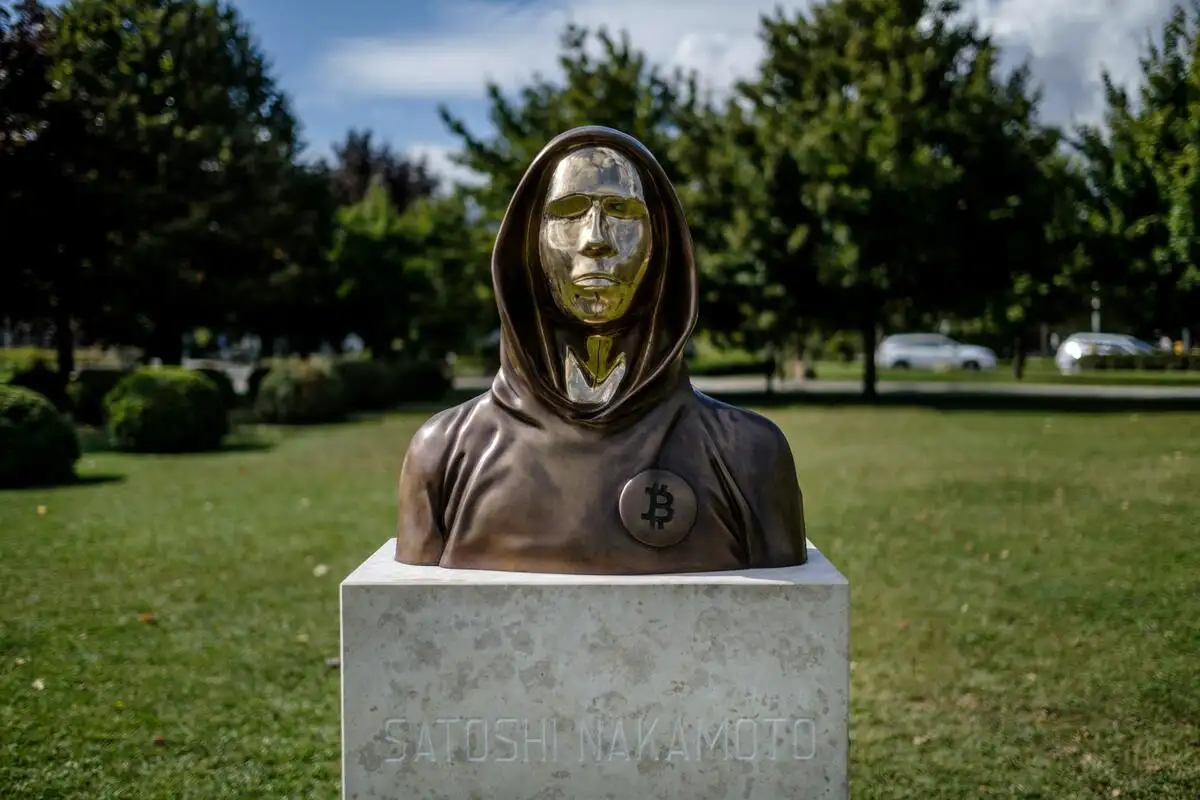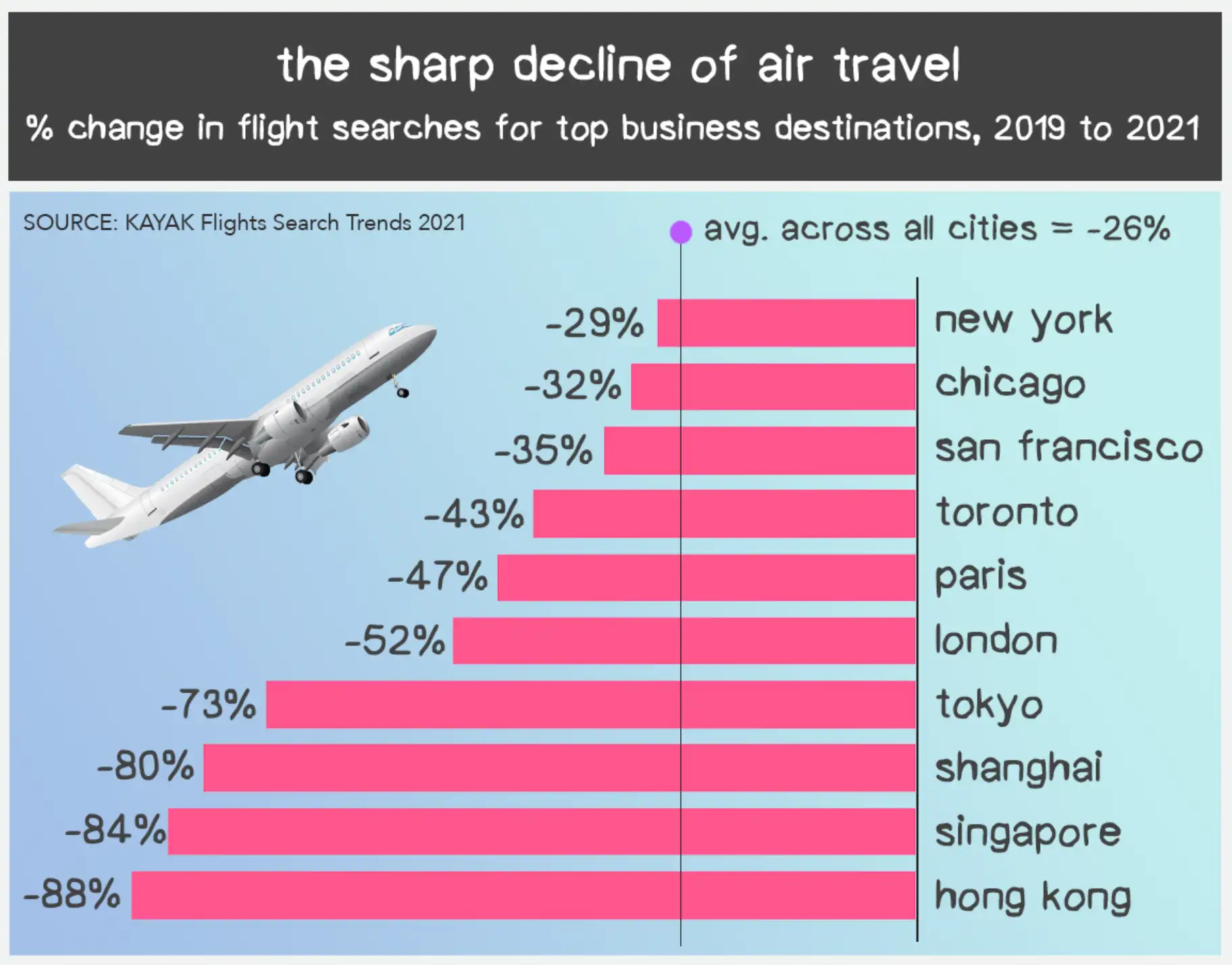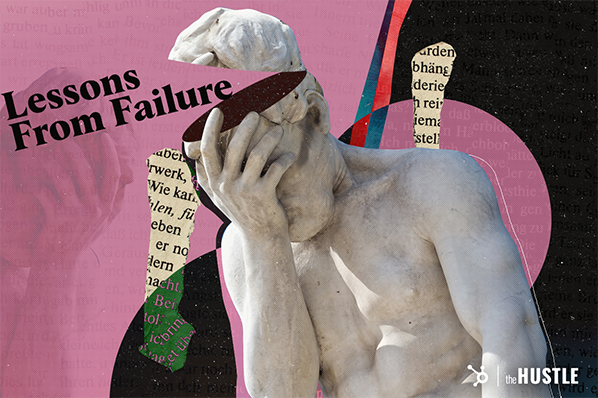In the metaverse, you can be anything you want: an ape in a hoodie, a cartoon cat, even a human who looks nothing like you. But IRL most early adopters of crypto look the same the industry has a staggering gender gap where men far outnumber women.

Crypto, the brainchild at the intersection of tech and finance, magnifies long-standing inequities in these sectors. Globally, only 21% of crypto owners are women and female ownership of bitcoin and ethereum are even lower at 15% and 20%, respectively. Of the 121 top crypto companies around the world, only 5 are led by women.
For women, who are paid an average of 20% less than their male counterparts, taking risks with their money can feel daunting. Women are also less likely to speak about finances with friends and family, further hindering their ability to learn about and enter new financial markets.
While the numbers tell a worrisome story, new female-founded startups have been springing up within the crypto community. Many have created organizations that offer educational components, believing learning about crypto is the first step to breaking down barriers for financial empowerment and independence.
Gender Gap in Crypto
A survey conducted by BlockFi showed that only 9% of women say they feel they understand crypto, and only 29% of women said they planned on purchasing crypto in the next year despite 50% stating they believe bitcoin prices will go up within 5 years.
Moreover, less than a quarter of the women knew how to buy virtual coins, and nearly 40% say they find cryptocurrency confusing.
BlockFi's research shows that the gender gap in cryptocurrency exceeds similar gaps in traditional investments such as equities, exchange-traded funds, mutual funds, or real estate, the press release states.
And diversifying the crypto space is about more than just doing what's right: Bitcoin and ethereum market caps are set to hit $1T as early as 2023, and the metaverse economy is projected to hit nearly $13T by 2030 women need to be where the money is.
With one of the main pillars of crypto being a decentralized and democratized financial system, an exclusionary industry seems contrary to its founding principles. But the tides are swiftly turning, and female and minority innovators who were previously alienated from the space are pushing the doors of Web3 open.
The Power Women of Crypto

Olayinka Odeniran, founder and chairwoman, Black Women Blockchain Council
When Odeniran first heard about bitcoin, she was hesitant. As a compliance officer in the financial industry, she didn't want to raise any red flags when her boss reviewed her trading by investing in an untested instrument.
But after more research, Odeniran saw that crypto was actually highly regulated virtual ledgers tracked the movements of payments, and users were held accountable for payments in a way she found encouraging. Her interest in the possible applications of this new technology was piqued.
"I was thinking on a global scale, this is something the Black community really needs," she says. "Whether it was governments in Africa or elections in the US with eligibility and fraud issues, this technology has a lot of accountability and can create trust through verification."
In 2018, Odeniran attended the North American Bitcoin conference in Miami, where she remembered that less than 1% of the speakers were women. To make matters worse, the event's after-party was held at a strip club.
"You would only create that environment for an after-party because you assume that it's all guys who are going to attend," says Odeniran. After that, a lot of us came together to create a Telegram group of all women.
That group became the springboard for Black Women Blockchain Council, an organization Odeniran founded in 2018 to train Black women in all things blockchain so that they can secure jobs in the crypto space and the economic empowerment that comes with it.
BWBC offers educational events, job boards, and other resources for its members. The organization is also launching an initiative in Africa where it will teach African women to create and sell NFTs.
The operation's crown jewel, though, is a program launching this year with blockchain software company ConsenSys. Costing only $25, the program aims to train half a million Black female developers in blockchain by 2030. Participants will finish the track as certified blockchain developers with Consensys.
Odeniran says that as a Black woman, just participating in the industry is enough to create change.
"There are still some barriers, but I've been part of a movement that's breaking them down," she says. I've been doing this for years, but this year alone so many people have started reaching out, started seeing me.
Jaime Schmidt and Brit Morin, co-founders, BFF
An Apple and Google alum, Morin founded Brit + Co, a lifestyle and online learning company, in 2011. She then teamed up with fellow entrepreneur Jaime Schmidt, creator of the natural deodorant and soap line Schmidt's Naturals, for their foray into Web3.
In 2021, the duo started BFF, an open-access community with a mission to help women and non-binary people get educated, connected, and empowered in web3. The platform gets users involved in the space through a Discord group, newsletter, and text updates, and provides reading lists, podcasts, and videos for educational content.
Its BFF Minted event dives into the fundamentals of crypto and includes celebrity fans such as Gwyneth Paltrow and Mila Kunis, who are among BFF's first members.
We believe that this is a revolution, said Morin of the opportunity for women to join Web3 during her speech at Minted. For many hundreds of years women have been fighting for equality and searching for equal rights this is a new multitrillion dollar industry that has been created, and we believe you should be a part of it.

Denise Schaefer, co-founder, Surge Women
Schaefer was early to the crypto game, making her first bitcoin and ethereum investments back in 2017, but she didn't consider the sector as a viable career.
"In 2021, Schaefer discovered NFTs, and a lightbulb went off. I realized I wanted to work in crypto," she says. But she saw 2 major obstacles: the lack of information and education in the industry, and the lack of women taking part.
Surge was born that same year as a solution to both. The company provides a weekly newsletter that covers the basics of the crypto industry, a job board, a Discord community, and in-person discussion groups to create a hub for female crypto investors.
"The language around crypto can often feel like a gated community; there wasn't a lot of easily accessible and digestible educational content," she says. Any time I tried to speak with friends about crypto who weren't already in the space, they found the language really intimidating.
The platform also offers Surge Passports, which gives holders of Surge NFTs access to a dashboard of perks ranging from Web3 tools and IRL experiences to financial education.
Schaefer hired a young female artist to hand-draw all the NFTs in the Surge collection and a female engineer who creates their final form.
"A big priority for us was adding female representation to the NFT landscape," she says. Whoever is building something has a lot of impact on the output. If all products are built by men, then they will inherently have a bias for how men think; that's why I think it's so important that women build this frontier alongside men.
Deana Burke and Natasha Hoskins, co-founders, Boys Club
Burke and Hoskins met while working at crowdfunding platform Indiegogo, then founded Boys Club, a dinner series and group chat for the crypto curious, in 2021. Built for women and nonbinary people, Boys Club aims to use online and in-person community events to further learning in a way that more traditional methods, like videos or podcasts, can't.
For concrete guides to learn before in-person meetings, users can navigate educational content on the site through the lens of crypto curious or crypto comfortable, both of which walk you step by step through lesson plans.
The first lesson for the crypto curious, for example, guides the user through creating a crypto wallet, setting up a Gemini account, and beginning a recurring buy of bitcoin and ethereum (paired with an explanatory TikTok on the subject, of course).
 Maggie Love, founder, SheFi
Maggie Love, founder, SheFi
In 2016, Maggie Love walked into a Barnes & Noble in New York City and picked up a book called Blockchain Revolution. By the time she put it down, she was sold.
I realized I could be working in tech and doing something good for the world, she recalls.
Love began spending her free time ducked down in her IBM cubicle, researching blockchain companies and interviewing for possible positions. That's when she was introduced to Joseph Lubin, the co-founder of ethereum, through a friend. They met for coffee, and he ultimately offered Love a job at ConsenSys, another company he'd started.
While working in DeFi (decentralized finance), Love noticed there weren't many women in the space alongside her.
The wheels started turning, she recalls. We were building the next internet and a more equitable internet, but if the people building it are the same ones that exist in traditional finance, we aren't going to create tools for everybody.
In 2019, Love founded SheFi, a platform that offers education and community to women looking to enter the crypto world. The firm offers 10- to 12-week boot camps in which Love, along with alumni of the program, teaches classes on everything from Web3 wallets and blockchain to DAOs and NFTs.
The ultimate goal is that each cohort of women leaves feeling educated and empowered to invest in, or work in, crypto as they please.
"We live in a world where financial empowerment is critical because there are so many systemic inequalities," says Love. "Money creates optionality and can unlock opportunities that might otherwise be harder. Crypto gives us the once-in-a-lifetime opportunity to empower people who've been traditionally left out of wealth-building opportunities."
Katie Haun
Katie Haun worked as a federal prosecutor for over a decade, creating one of the government's first cryptocurrency task forces in 2014. After leaving her government career, Haun was appointed to the board of Coinbase in 2017, then joined venture capital firm Andreessen Horowitz (also known as a16z) as its first female general partner the following year.
Applying her legal expertise to the complex regulations of the crypto industry, Haun led the firm's investments in companies like Coinbase and OpenSea.
Haun eventually left to found her own crypto-focused VC firm, Haun Ventures, in 2022. The firm has already raised $1.5B, making it the largest debut fund ever raised by a female VC.
My path to this moment certainly wasn't a traditional one. In many ways, I didn't fit the mold. The mentorship and support of so many people helped me step outside my comfort zone and turn not fitting the mold into an asset, Haun wrote in her announcement of the firm. As web3 grows to touch every aspect of our lives, we'll need more voices and perspectives of those who break the mold.
Haun Ventures will invest in both crypto startups and tokens, committing $500m for early-stage companies and protocols, and $1B for later-stage projects.
Crypto Platforms Built for Women and Minority Groups
If you're looking to take the plunge and get involved in crypto but aren't sure where to start, check out these crypto organizations dedicated to women and minority groups:
- BFF
- Black Women Blockchain Council
- Blockchain Girls: A nonprofit dedicated to increasing diversity in crypto through education
- Boys Club
- Crypto Besties: A women-led collective currently crowdfunding to build a metaverse makeup line
- Global Women in Blockchain: An international nonprofit aiming to empower women through networking events and education
- Komorebi Collective: A DAO group investing exclusively in crypto startups by women and nonbinary founders
- she256: A nonprofit on a mission to increase diversity and broaden the talent pipeline in crypto through education
- SheFi
- Surge
- Web3 Familia: An organization founded by Latinx investors with the goal of onboarding 1m Latinx people onto Web3
- Women of Crypto: A NFT collection of 8888 female 3D avatars
Advice From Female Founders
For those looking to dive in, whether as an investor, founder, or just a community member, the women paving the way have valuable advice on how to do so effectively:
"Jump in, get educated, because education is really important. You should focus on decentralization and self-sovereignty. As an individual you should be able to control your own data, data is everything. Data is your money, data is things that are personal to you, it's things you've created."
— Olayinka Odeniran
"I think most people, and especially women, have felt imposter syndrome at one point or another. I'm definitely a victim of it at times. And whenever you feel that, just keep going. Crypto is such an exciting new space, and you can set your own rules in a lot of ways. It's so innovative, and you can help build a new frontier."
— Denise Schaefer
"I think a big thing that used to prohibit people from getting into crypto was the idea that it was going to fall apart, and then what would you do? Now, crypto is here to stay. Just go find the job, go find the skill you want to get or the company you want to work at, and don't worry about it looking like a silly divergence from your career. Now is an amazing time to be taking these chances. Find trusted sources, experiment, and come work in the most exciting industry in the world."
— Maggie Love
.jpg?width=48&height=48&name=IMG_2563%20(1).jpg)



-1.png)


.png)

.png)
